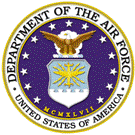United States Department of Defense

United States Air Force: Publications
Document Type
Article
Date of this Version
2016
Citation
Military Psychology, 2016, vol. 28
Abstract
Previous research has shown that the same aptitude and trait measures that predict success in US Air Force (USAF) manned aircraft pilot training predict remotely-piloted aircraft (RPA) pilot training outcomes with generally similar levels of validity (Carretta, 2013; Rose, Barron, Carretta, Arnold, & Howse, 2014). However, because USAF RPA pilots initially train in manned aircraft, validation of aptitude and traits predicative of RPA pilot success has thus far been limited to RPA pilot training outcomes that actually require manned flight. Hence, thus far there has been no basis for determining the aptitudes and traits predictive of success in environments in which pilots actually fly RPAs. To address this gap, the present study evaluated pre-accession trait (Big Five personality domains) and aptitude (spatial, quantitative, and aviation knowledge) measures as predictors of manned and unmanned aircraft pilot performance on-the-job, as measured by supervisor and senior rater stratification on three years of Officer Performance Reports (OPRs). Results were generally consistent in showing that the same aptitudes, knowledge, and personality traits that predict successful job performance for manned aircraft pilots also predict successful job performance for RPA pilots. However, results also showed pre-accession aviation knowledge to be a stronger predictor of job performance for RPA pilots than for manned aircraft pilots. These findings and their implications for attracting and selecting RPA pilots are discussed.

